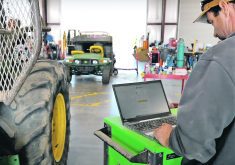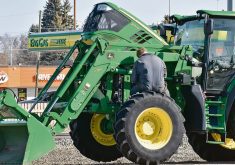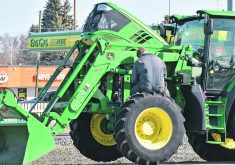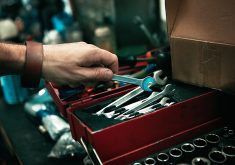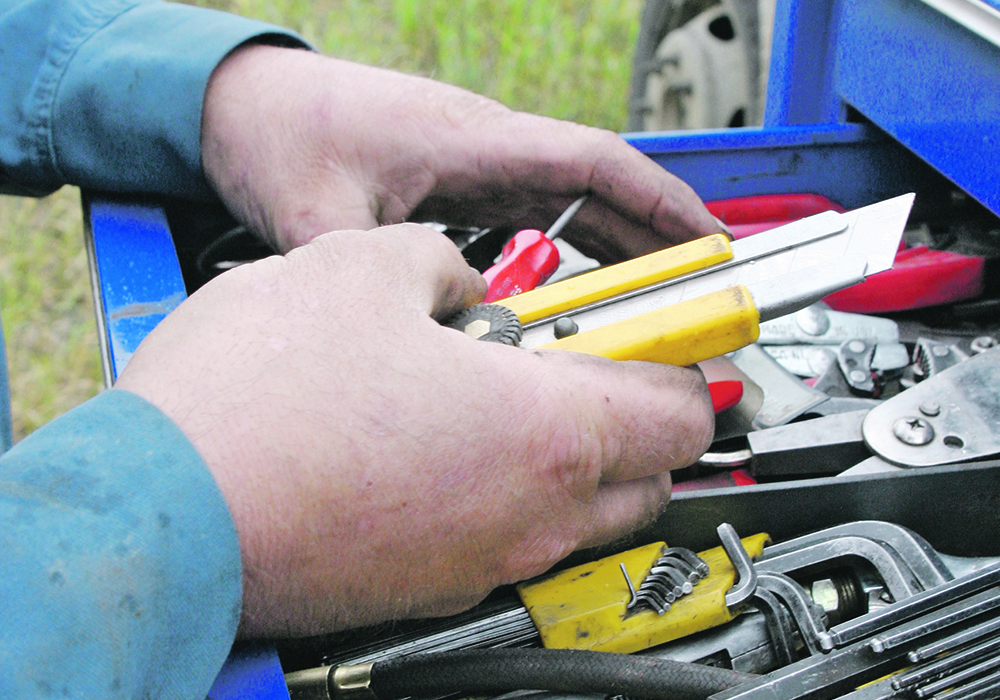I did not realize until now that there was quite as big a “movement” about aftermarket repair.
I have talked to a few mechanics who repair mostly John Deere farm equipment, and they say up to 2006 they can get into most farm machinery computers. I get the sense that these guys are low profile and don’t want to anger the original equipment manufacturer because they need to get parts, and more importantly, information, and maybe a copy of a computer program once in a while, although they did not say that.
Read Also

Volatile temperatures expected for this winter
DTN is forecasting a lot of temperature variability in the Canadian Prairies this winter. Precipitation should be close to average.
It seems like some of the people who are upset because they can’t crack the OEM code are computer geeks. I am not. I am just cheap. I don’t want to spend $130 per hour on a mechanic that has no parts with him and almost certainly will take two visits to fix it because of that. The thing that really angers me is when I have to pay for shop rags extra on top of the $130.
The aftermarket places charge about $90 per hour, so there is some saving. But if it takes them longer, then of course the saving disappears. One of our local aftermarket mechanics uses a computer analysis program for highway trucks to diagnose farm tractors. The aftermarket diagnostics for highway tractors are more available because of the higher demand.
Related stories in this issue:
- U.S. farmers fight for right to repair
- Farmer group concerned with future of implements
- Tractor hacking new underground revolution
- Right to repair doesn’t solve basic problem
- Manufacturers plan to offer farmers more information
I feel sorry for the technicians who have to repair these machines. They hook into the computer and it usually tells them only half the story. Sometimes they have to reprogram newly installed parts, which is frustrating for them. I have found the technicians quite good and helpful, but at the end of the day, they will replace electronic devices and often the problem is not solved.
For example, in 2013 my tractor was displaying several error codes, which could be ignored and work could continue. However, there was an extreme danger. I had to be very careful when I worked on the air seeder because the tractor would decide to fold up the air seeder any time it wanted. An electro-hydraulic controller was going rogue and the batteries drained when I parked the tractor for three days.
So, $2,500 later, I had two new batteries and a new electro-hydraulic controller. But I still had the error codes, still had dead batteries and still had rogue hydraulics so that the air seeder continued to fold up with no warning. The service manager told me I should disconnect batteries when I left tractor. That’s not my idea of fixing the problem.
In 2017, my 5,000-hour Claas combine burned out the main electronic board. A new one is $6,700 plus installation, and there’s no guarantee that other components that caused the problem won’t need replacement.
This used combine came with a spare used main board that had been taken out because it no longer registered engine hours. Otherwise, the board looked good. There was no black smoke marks and it did not smell burned. A consumer electronics shop went through it and found nothing wrong.
So we installed the spare. As expected, the hour meter did not work, but that’s no problem. However, during combining it occasionally shut off the threshing mechanism. We found a mistake in one of the solenoid plugs on the board. By placing a wire across the terminals and bypassing one relay, all functions on the combine worked just fine, except the hour meter.
So my Claas will stay shiny and 5,000-hours young forever and I saved more than $6,700.
I prefer Claas over other brands. As well, Agwest, the Claas dealer in Portage la Prairie, Man., has been very helpful on the phone.
With this many hours on the combine, I didn’t want to invest too much money. There could be other electronic problems coming soon that will send my combine to the recyclers. I feel mechanical components have become so good that we are sending machines to the wrecker because it’s too expensive to fix the electronics. Can farmers afford to grow food in a world with disposable implements?
John Gehrer farms near Niverville, Man.
For more stories about right to repair issues click here.



